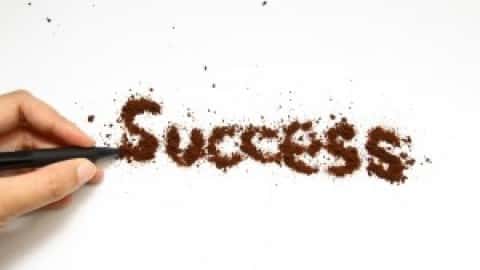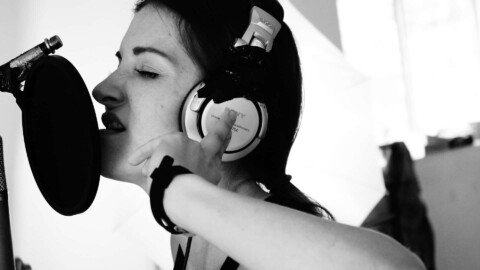Clicks, pops, and plosives – a voice actor’s worst nightmare! It doesn’t take too long as a working actor to start hearing these terms all the time. They’re all considered “mouth noises”, and they’re detrimental to our hard work! As a regularly dehydrated actress myself, I’m in a constant state of battling it out against these recording-ruiners. It’s devastating to play back an audition and in the height of your best take hear that familiar CLICK! of saliva crackle through your every word. But don’t panic. I know some of the best tips and tricks for fixing mouth noises before they even begin, and I’m sharing them with you here!

oh snap! did pop just crackle on the mic?
“Mouth noise” is a funny term for it, right? Everything we do in our career is mouth noise! But this term specifically refers to noises you make with excess (or lack of) saliva and with your breath. In reality, they’re both pretty easy to solve. Which would make it pretty ironic if I made one during the voice-over of this blog post…
Let’s go through solutions.
Clicks – Clicks are caused by saliva (or the lack of saliva) in your mouth snapping or squishing against your tongue and teeth while you talk. Gross, right? In my experience, that sound usually comes from behind the molars or under the tongue. An extreme example of this would be if you ran a marathon without water, and then felt how sticky your saliva was in your mouth while you tried talking. The stickiness is what’s making that noise! We need to get rid of that before recording.
There are a million home remedies and tricks you’ll find online for this – eating a granny smith apple (which creates more saliva production), taking a shot of olive oil, brushing your teeth, etc. that may work in the moment. If you’re just trying to get through a quick audition, by all means give that a try. But there’s really only one thing that’s going to consistently keep you sounding fresh and saliva-free, and that’s being hydrated. Drink water! The stickiness comes from dehydration, and there is truly just one cure for that – water, water, water. I always have a large water bottle in the booth with me, and I make sure I’m drinking water all day regardless of whether I’m recording or not. Plus, it’s good for your health. It’s a no-brainer!
In addition to staying hydrated, try to keep certain foods to a minimum in your daily diet: candy, dairy, and tobacco. Sugary and starchy foods are going to contribute to saliva production and dehydration, and smoking cigarettes is going to dry your mouth out! (Although, you may end up with that lovely Natasha Lyonne rasp…)
Beyond all of the home remedies, you can also try something a little less homeopathic. Dry mouth sprays or relief lozenges can be popular amongst voice actors for days when you need a little help with saliva production! For the opposite problem, you can try saliva control pads to dry up your mouth. If either of these issues seem severe for you, I’d also highly recommend talking to a doctor. It might be that a prescription medication will help clear up the problem!
Pops & Plosives – these terms can be used pretty interchangeably and are both caused by your breath. A plosive more literally means any sound in the English alphabet that briefly stops airflow and is then followed by a sudden rush of breath. p, t, k, d, g, and b are the letters that most commonly do this. When you make a plosive sound into the mic, that little rush of air shoots straight into your microphone and can disrupt your audio! They’re usually very easy to see in the recording playback as well, and look like a small, sharp spike in sound.
Two things are going to be helpful here:
1. A pop filter! These are a relatively inexpensive add-on to any microphone and are designed to break up that breath that’s shooting straight into your mic.
2. Switch up your angle to the mic. While it’s important to remain close to the microphone, you may want to move your head slightly so that your breath is shooting to the side of the microphone rather than directly towards it.
While these can also be diminished slightly in post-production, the better your pure audio sounds, the better your work is going to be. Too much noise removal can compromise your audio quality altogether.
Both of these issues are incredibly common among voice-over artists, so if you’re struggling with it, have no fear! You are certainly not alone. No matter what level of experience you have, keeping cognizant of your hydration and your breath is an important part of this job. Now go have a glass of water right now! 🙂
Check out our free PDF with pro-tips from real working voice-over actors here!
Want to learn more about voiceover? Signup for our introductory VO webinar.









